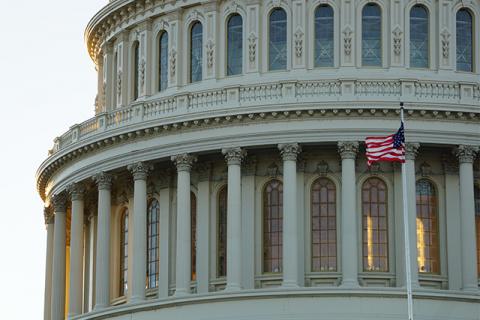Growing National Focus on Fighting Domestic Terrorism Has Many Complexities
March 18, 2021The January 6 attack on the Capitol continues to resonate throughout the counterterrorism community. In his first few weeks in office, President Biden labeled the attackers “domestic terrorists” and ordered a domestic threat assessment to further identify potential threats from extremist networks.
Press Secretary Jen Psaki shared details of Biden’s plan in a press conference in January. In addition to the threat assessment, Biden’s plan includes directing the National Security Council to expand its capabilities for handling domestic threats and a request that all related federal departments work on enhancing efforts to combat terrorism.
“The NSA will undertake a policy review,” reported Joey Garrison for USA Today, summarizing Psaki’s statements, “to determine how the government can share information more effectively to address threats, prevent radicalization and disrupt violent extremist networks.”
Counterterrorism efforts often focus on attacks “originating” outside of the United States, such as those that occurred on September 11, 2001. However, the recent attack on American soil – in America’s capital, has redirected many efforts inward. The goal is to not reinvent the wheel, but to build on those initiatives that are already in place.
Some express concerns with Biden’s plan, though, in terms of how terrorism is currently defined and how laws surrounding freedom of speech may come into play.
USA Today’s Editorial Board responded to word that the Biden administration is considering a new domestic terrorism law.
“The definition of a terrorist under federal law is anyone who commits violence ranging from murder to destruction of property with the intent of intimidating or coercing a civilian population, influencing government policy through intimidation or coercion, or to affect the conduct of the government,” shared the editors, noting that currently the law only applies in terms of international terrorism.
In a ruling by the Supreme Court, they continue, if the government declares an organization located inside the United States as a terror group that may violate First Amendment protections.
Legislation was proposed in early 2020 that would result in regular, detailed assessments of domestic terrorism and would allocate resources in areas of most need. At this time, however, that bill is still sitting with the Committee on the Judiciary.
Military Involvement in Domestic Terrorism
Adding complexity is the involvement of current and former military in domestic terrorism. Nearly 48 percentof investigations opened by the FBI in 2020 were related to concerns about domestic extremism, shared Jeff Seldin for VOA News. Seldin also shared that George Washington University estimated 20 of the 181 Capitol attackers were former military.
On February 5, Defense Secretary Lloyd Austin ordered a stand-down, or pause in military operations, “to give the leaders of the military services a chance to talk about the spread of extremist ideology and the impact it is having on military members,” reported Seldin.
While the legal impacts at the national level are still to be determined, it’s clear that the definition of terrorism is changing, and those in counterterrorism need to be prepared for potential attacks both inside and outside of the United States.
Want to learn about counterterrorism? Capitol Tech offers an Online Bachelor’s in Counterterrorism Degree. To learn more about this Online degree C, contact admissions@captechu.edu.



